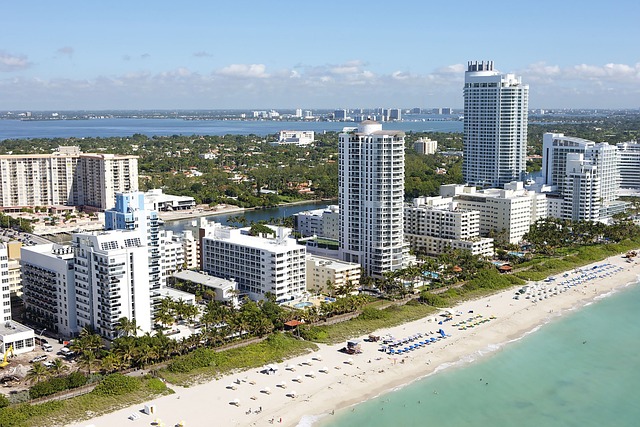Florida, the Sunshine State, is known for its beautiful beaches, vibrant culture, and diverse landscape. However, living in paradise comes with its own set of challenges, one of which is the higher cost of insurance compared to other states. This article aims to answer your questions and guide you towards affordable insurance in Florida tailored specifically to your needs.
Key Takeaways:
- Florida’s Insurance Landscape: Unique factors like natural disasters and high property values contribute to higher insurance costs in Florida.
- Affordable Options Available: Residents have access to affordable insurance like car insurance, homeowners insurance, flood insurance, and renters insurance.
- Finding Affordable Coverage: Comparing insurance quotes, leveraging discounts, and adjusting deductibles help residents get lower insurance premiums.
- Empowering Residents: Understanding insurance factors and available options empowers Florida residents to get the best inexpensive insurance.

Why are Insurance Costs So High in Florida?
While Florida offers a desirable lifestyle, finding affordable insurance can be a challenge due to several unique factors:
1. Frequent Hurricanes and Natural Disasters:
Florida’s geographical location puts it directly in the path of hurricanes and tropical storms. These natural disasters cause significant damage to property and infrastructure, resulting in substantial losses for insurance companies. To mitigate these risks and remain financially sound, insurance companies must charge higher premiums to cover potential claims. One example, according to a 2023 report by the Florida Office of Insurance Regulation hurricane losses in Florida alone exceeded $10 billion in 2022, highlighting the significant financial burden these events place on the insurance industry.
2. High Property Values:
Florida’s popularity as a tourist destination and retirement haven has driven property values, particularly in coastal areas, to a higher average than the national level. This directly impacts the cost of homeowners insurance and renters insurance, as the value of the property being insured is a key factor in determining premiums. For instance, homeowners insurance covers the cost of rebuilding a damaged home, and a higher property value translates to a higher cost for the insurance company to replace it.
3. Medical Costs:
Florida has a higher-than-average cost of medical care compared to the rest of the United States. This translates to higher costs for health insurance companies, as they anticipate potentially larger payouts for medical claims. Factors contributing to these higher costs include a large number of retirees and an aging population, increasing use of specialized technology and treatments, and higher overall healthcare costs in the state.
4. Increased Litigation:
Florida unfortunately experiences a higher rate of lawsuits related to insurance claims compared to other states. This phenomenon, often referred to as “litigation risk,” can lead to increased legal expenses for insurance companies, which ultimately gets factored into insurance premiums. While the reasons for this higher litigation rate are complex and multifaceted, it contributes to a higher overall cost of insurance for Florida residents.
Understanding these factors helps explain why insurance costs in Florida might be higher than in other parts of the country. However, this doesn’t mean inexpensive insurance is nonexistent. Now let’s explore various insurance options and strategies to help Florida residents find the best possible insurance coverage at the best price.

What are the Different Types of Affordable Insurance in Florida?
While the cost of insurance might seem daunting, there are various options available to help Florida residents secure affordable insurance coverage. Here are some popular types.
Car insurance
Liability coverage: This is the minimum required car insurance coverage in Florida and offers financial protection if you cause damage or injury to others in an accident. Opting for higher deductibles can lower auto insurance costs.
Collision and comprehensive coverage: These add-ons provide additional protection for your own vehicle in case of accidents, theft, or other damages. Consider your vehicle’s value and driving record when deciding if these are necessary for you.
Home insurance
Standard homeowners insurance: This covers your home’s structure, personal belongings, and liability for accidents on your property. Explore options for increasing your deductible or bundling your insurance with other policies like auto insurance to potentially lower costs.
Flood insurance: While not mandatory, flood insurance is crucial in flood-prone areas of Florida. Explore government programs like the National Flood Insurance Program (NFIP) for affordable options.
Condominium or renters insurance: These offer coverage specific to your living situation, protecting your belongings and potential liability.

How Can I Find the Best Affordable Insurance Quotes in Florida?
Finding the best affordable insurance quotes in Florida requires comparison shopping and being proactive. Here are some key steps:
- Shop around: Get quotes from several insurance companies, both national and regional providers. Utilize online comparison tools or contact independent insurance agents familiar with the Florida market.
- Ask about discounts: Many insurance companies offer discounts for factors like good driving history, multi-policy bundling, safety features on your vehicle, or being a homeowner with a security system.
- Increase your deductible: By increasing your insurance deductible, the amount you pay out-of-pocket before the insurance kicks in, you can significantly lower your insurance premium. However, ensure you can comfortably afford this expense if needed.
- Review your coverage regularly: As your life and needs change, reevaluating your coverage is crucial. By adjusting your insurance policy, you can achieve lower insurance costs, and still maintain the protection you need.


